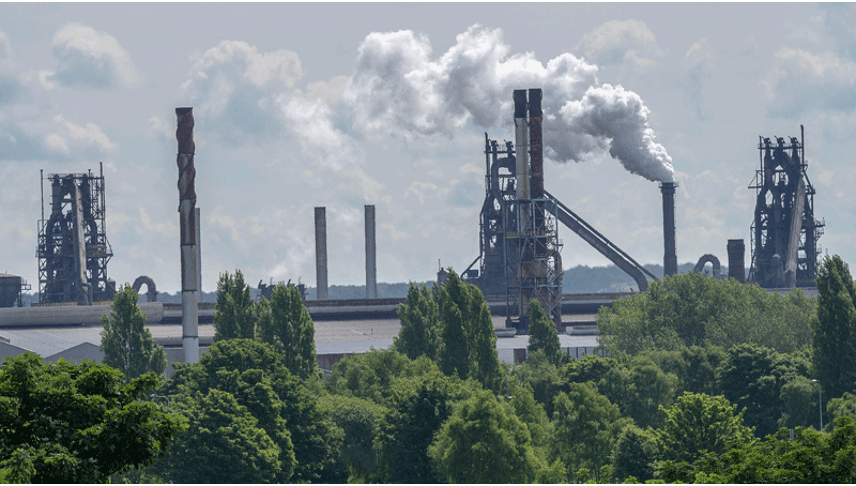Register for free and continue reading
Join our growing army of changemakers and get unlimited access to our premium content

Stock image of British Steel's Scunthorpe site
The steelmaker confirmed on Wednesday (22 February) that it will consult on the closure of the coke ovens in the coming weeks, with up to 260 job losses at its integrated steelmaking site in Scunthorpe, Lincolnshire. It said it was “disappointed at having to make such proposals” but “confident that they will support a successful transformation”.
In a statement, the business said the decision was taken based on a number of factors relating to costs and to the need to reduce its climate impact.
On the cost front, British Steel posted a £120m year-on-year increase in energy costs in 2022. It has stated that it has taken action to reduce costs within its control and is “extremely grateful” for government support with energy bills so far.
“However, steelmaking in the UK remains uncompetitive when compared to other international steelmakers,” chief executive Xifeng Han added.
“Our energy costs, carbon costs and labour costs are some of the highest across the world, which are factors that we cannot influence directly… To build a secure future for British Steel, and protect skilled and well-paid careers for thousands of employees and many more in our supply chain, we are – like many other businesses – proposing to streamline our business.”
Climate and cost grounds actually overlap, with British Steel confirming a £70m year-on-year increase for 2022 in costs relating to carbon emissions. The UK Government does waive some carbon costs for energy-intensive businesses and this week set out plans to increase support here.
Net-zero transformation
The iron and steel sector account for around 14% of the UK’s industrial emissions. The UK Government’s climate advisors have recommended that the sector reduces its absolute emissions by at least 23% by 2030, against a 2019 baseline, to align with legally binding carbon budgets.
British Steel has stated that the coke ovens are nearing the end of their operational life and that closing them “would bring environmental benefits including reductions in emissions to air and water”. A spokesperson clarified to edie that the closures would not impact the amount of steel it is able to produce, however.
The company was acquired by Jingye in March 2020 and, 18 months later, it published a new ‘Low-Carbon Roadmap’. The roadmap is headlined by a 2050 net-zero target for all steel and promises its delivery in a science-based manner, in line with the Paris Agreement. It includes an interim commitment to stock at least 50% low-carbon steel by 2030.
To deliver these steep cuts in emissions, the business has stated that it will need to “undergo the biggest transformation in its 130-year history”. It has emphasised the importance of innovating to create lighter-weight products that last longer and include more recycled content. It will also need to shift its energy use away from fossil fuels, towards hydrogen and electric arc furnaces. Where fossil fuels are still needed, they will need to be co-located with man-made carbon capture.
British Steel has stated that delivering the roadmap will be achievable with the appropriate supporting policies from the Government. It has been asking the UK Government for up to £1bn to help deliver the climate plans and has reportedly been offered £300m. We can expect more clarity at the Budget announcement from Chancellor Jeremy Hunt next month.
The announcement on coke furnaces from British Steel will doubtless cast further questions on the business case for the UK’s first deep coal mine in more than three decades, for which Government permission was granted by Michael Gove in December 2022. The mine will only supply coal for use in steelmaking, not in power generation, with a majority of extracted coal set to be exported.
Gove stated that he agreed with developers West Cumbria Mining that there is not currently a “compelling case” for hydrogen direct reduction or electric arc furnaces as an alternative to coal in the UK at present, despite strong support from firms like British Steel.


I cannot understand Gove’s comment! In my opinion there is definitely a compelling case for hydrogen direct reduction and electric plus more renewable energy, spend any money on this instead of the coal mine.
I consider that Mr. Dowdeswell has got it correct!
Not many actual scientists in the political circle?
Richard Phillips